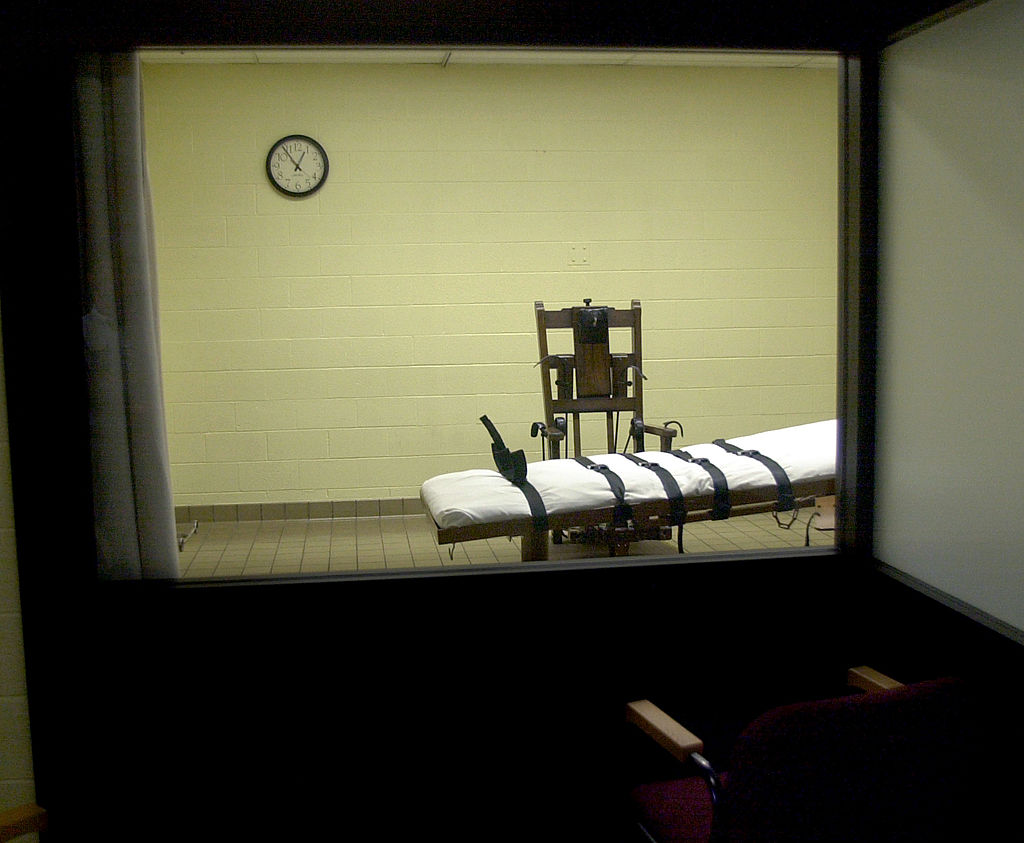Idaho passes new law to boost secrecy around execution drugs
Mar 25, 2022, 8:13 PM | Updated: Jun 13, 2022, 3:37 pm

FILE PHOTO -- A view of the death chamber from the witness room at the Southern Ohio Correctional Facility shows an electric chair and gurney August 29, 2001 in Lucasville, Ohio. The state of Ohio is one of the few states that still uses the electric chair, and it gives death row inmates a choice between death by the electric chair or by lethal injection. John W. Byrd, who will be executed on September 12, 2001, has stated that he will choose the electric chair. (Photo by Mike Simons/Getty Images)
(Photo by Mike Simons/Getty Images)
BOISE, Idaho (AP) — Idaho Gov. Brad Little has signed into law a bill that dramatically increases the secrecy surrounding Idaho’s execution drugs.
The Republican governor signed the bill Wednesday after it passed the Senate 21-14 and the House 38-30. The law prohibits Idaho officials from revealing where they obtain the drugs used in lethal injections, even if the officials are ordered to do so by the courts.
The legislation drew passionate debate from Republican and Democratic opponents who said it would be challenged in court, that executions require more transparency rather than less and that it would reduce public trust in the state’s execution process.
But supporters said the bill was the only way that the state would be able to continue to carry out lawful executions, because no suppliers of lethal injection chemicals will sell the drugs to the state without guaranteed confidentiality.
Republican Sen. Todd Lakey, one of the bill’s sponsors, said the drugs are tested for efficacy before they are used and that the Idaho Department of Correction takes executions seriously. Nineteen other states have similar confidentiality provisions, he said.













